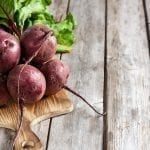Garlic – not just an old wives’ tale
Sometimes called “Nectar of the Gods,” garlic tastes great, and it really is great for you. Garlic does so much more than add flavour to your food; it is considered a healing superfood.

In fact, it is better to eat your garlic as a wonderful spice added to your daily diet than buying expensive supplements. Some of garlic’s unique components are most durable in food (versus processed extract) form. Allicin—one of garlic’s most highly valued sulfur compounds—stays intact for only 2-16 hours at room temperature when it is present in purified (extracted) form. But when it’s still inside of crushed garlic, allicin will stay viable for over two days.
Here are 3 reasons to love garlic:
1. Garlic supports the cardiovascular system
The cardioprotective benefits of garlic may partly rest on the production of hydrogen sulfide (H2S) gas. Our red blood cells can take sulfur-containing molecules in garlic (called polysulfides) and use them to produce H2S. This H2S in turn can help our blood vessels expand and keep our blood pressure in check.
Interestingly, some processed garlic extracts cannot be used by our red blood cells in the same way and do not seem to provide the same level of cardioprotection that is provided by garlic in food form.
Garlic also works as a blood thinner or anti-thrombotic, thereby preventing blood clot formation. For this reason, people already on anti-thrombotic therapy should speak to their doctors before taking garlic therapeutically. Including it in your cooking however is safe and recommended.
Garlic inhibits the same enzyme that statins do, without all the side effects. It is rich in flavonoid antioxidants and helps reduce atherosclerosis by preventing oxidation of low-density lipoprotein (LDL) or the “bad” form of cholesterol
2. Garlic supports the immune system
Garlic is anti-microbial, due to a component known as allicin, making it safe for treatment of infections like the common cold. In fact, it’s often the only treatment I seek when a bug is going around the office.
Simply mince a clove, wait 15 minutes to get the air activate the enzymes that maximise the potency of the active component, mix with some olive oil (or chilli pepper oil if you’re adventurous) and spread on bread or over veggies.
In addition, it is also a good source of selenium, so important for detoxification and the immune system. In fact, garlic may be a more reliable source of this crucial mineral than other foods. Garlic is what scientists call a “seleniferous” plant: it can uptake selenium from the soil even when soil concentrations do not favour this uptake.
It may even help to protect us against cancer. Garlic is especially good at warding off stomach and colorectal cancers. In people with pre-cancerous growths known as adenomas, garlic may decrease the size and number of the mutated cells. Garlic also reduces the risk of haematological cancers like leukaemia and lymphoma. Garlic is thought to increase immune system activity, making it more likely to detect and fight tumours.
3. Garlic may prevent obesity
While still in its very early stages, research suggests that garlic consumption may actually help to regulate the number of fat cells that get formed in our body. 1,2-DT (1,2-vinyldithiin) is one of the unique sulphur compounds in garlic that has long been recognized as having anti-inflammatory properties.
But only recently have researchers discovered that some of our fibroblastic cells (called “preadipocytes”) only evolve into full-fledged fat cells (called “adipocytes”) under certain metabolic circumstances involving inflammatory system activity. 1,2-DT may be able to inhibit this conversion process.
Since obesity is increasingly viewed by researchers as a chronic state of low-grade inflammation, the inflammation-related benefits of garlic’s 1,2-DT may eventually be extended into the clinical area of obesity
Helpful Tips For Reaping Garlic’s Benefits
To reap the benefits, you should try to include at least 1/2 clove in your individual food portions. If you’re preparing a recipe, I recommend 3-4 cloves for 1 onion. As my web-guru said wisely, “If it doesn’t have garlic in it – it must be chocolate cake!”
- Eat it raw as part of a salad dressing or raw soups
- Add it to organic butter and olive oil and serve it on hot toast
- Add it to cooked foods at the end of cooking
- Roast it gently with your vegetables – it makes garlic sweet!
- Try juicing it with your mixed veggies.
- Make garlic tea: simply crush a few cloves, allow them to steep in hot water for 15 minutes, add a small amount of honey and sip the flu away!



